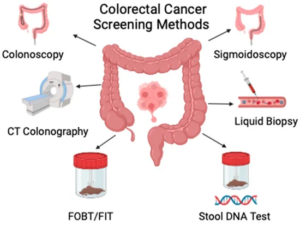
Introduction
Colorectal cancer, often referred to as colon or rectal cancer, is a serious health condition that affects the colon or rectum. Early detection and timely treatment are critical in improving outcomes. With advancements in medical technology and expertise, comprehensive colorectal cancer treatments now offer hope and better recovery rates. This guide will discuss the available treatment options and why consulting with the top 10 gastroenterologist in Surat can make all the difference in your care.
Understanding Colorectal Cancer
Colorectal cancer begins when abnormal cells grow uncontrollably in the colon or rectum. These cells can form polyps, which may turn cancerous if not treated. The condition can develop due to several factors, including:
- Genetic predisposition
- Lifestyle choices, such as poor diet and lack of exercise
- Pre-existing conditions, like inflammatory bowel disease
- Age (more common in people over 50)
The symptoms of colorectal cancer can vary but often include persistent changes in bowel habits, blood in stool, abdominal pain, and unexplained weight loss. If you experience these symptoms, consulting a gastroenterologist in Surat is essential for timely diagnosis and treatment.
Diagnosis: The First Step to Recovery
Diagnosis is the cornerstone of effective colorectal cancer treatment. The process typically involves:
- Screening Tests
- Colonoscopy: A procedure to examine the colon and rectum for abnormalities.
- Fecal Tests: These detect blood or abnormal DNA in the stool.
- Imaging Tests
- CT or MRI scans to identify tumor location and determine the stage of cancer.
- Biopsy
- If polyps or abnormal tissues are detected, a biopsy is performed to confirm the presence of cancer cells.
Accurate diagnosis helps doctors develop a personalized treatment plan that caters to the stage and nature of cancer.
Comprehensive Treatment Options
The treatment of colorectal cancer depends on the stage, tumor location, and overall health of the patient. Below are the most common and effective options:
1. Surgery
Surgery is often the primary treatment for colorectal cancer, especially in the early stages. The goal is to remove the cancerous tumor and affected tissues.
- Polypectomy: For small, localized polyps, this minimally invasive procedure is done during a colonoscopy.
- Colectomy: Involves removing part or all of the colon. Advanced techniques like laparoscopic surgery ensure quicker recovery and minimal scarring.
2. Chemotherapy
Chemotherapy involves the use of powerful drugs to kill cancer cells or prevent them from growing. It’s often recommended for:
- Advanced stages of colorectal cancer
- Reducing the risk of recurrence after surgery
Side effects like nausea and fatigue are common, but supportive care helps manage them effectively.
3. Radiation Therapy
Radiation therapy uses high-energy rays to target and destroy cancer cells. This treatment is particularly useful for rectal cancer, as it helps shrink tumors before surgery or eliminates remaining cancer cells afterward.
4. Targeted Therapy
This innovative treatment focuses on specific molecules involved in cancer growth. It is often less harmful to healthy cells compared to traditional chemotherapy. Commonly used targeted therapies include:
- VEGF inhibitors: To block blood supply to the tumor.
- EGFR inhibitors: To prevent cancer cell growth.
5. Immunotherapy
For patients with advanced or recurrent colorectal cancer, immunotherapy harnesses the body’s immune system to fight cancer. It has shown promising results in certain cases, particularly for tumors with specific genetic mutations.
6. Palliative Care
For advanced stages, palliative care focuses on improving the quality of life by managing symptoms and providing emotional and psychological support.
Why Early Treatment is Crucial
The earlier colorectal cancer is detected, the more effective treatment can be. In its early stages, colorectal cancer is often curable with surgery alone. However, as the disease progresses, it may spread to other parts of the body, requiring more aggressive treatments like chemotherapy and radiation.
Regular screenings are vital, especially for individuals over 50 or those with a family history of the disease. By consulting the top 10 gastroenterologist in Surat, you can stay ahead of potential risks and ensure timely intervention.
Lifestyle Changes for Prevention and Recovery
While medical treatment is essential, lifestyle changes can also play a significant role in managing and preventing colorectal cancer:
- Healthy Diet
- Eat plenty of fruits, vegetables, and whole grains.
- Limit red and processed meats.
- Regular Exercise
- Physical activity helps maintain a healthy weight and reduces cancer risk.
- Quit Smoking and Limit Alcohol
- Both are significant risk factors for colorectal and other cancers.
- Routine Screenings
- Regular colonoscopies can detect precancerous polyps early, significantly reducing the risk.
Choosing the Right Specialist
Finding the right colorectal surgeon or gastroenterologist is crucial for effective treatment. Specialists with experience in advanced techniques and personalized care can significantly improve outcomes. If you’re in Surat, you have access to some of the best medical professionals and state-of-the-art facilities.
Final Thoughts
Colorectal cancer is a serious but treatable condition, especially when detected early. By understanding the available treatment options and making informed lifestyle choices, you can take proactive steps toward better health. Consult the top 10 gastroenterologist in Surat for expert advice and care tailored to your needs.
Remember, timely action can make all the difference. Don’t hesitate to seek help if you notice symptoms or have a family history of colorectal cancer.
